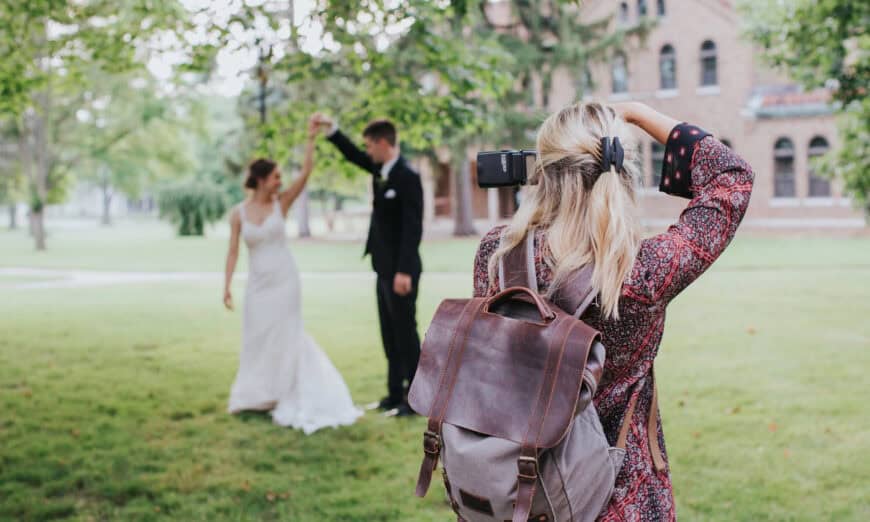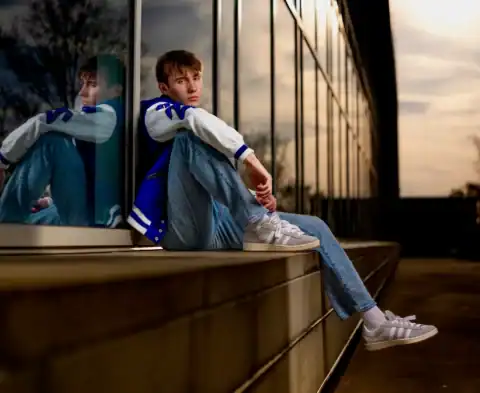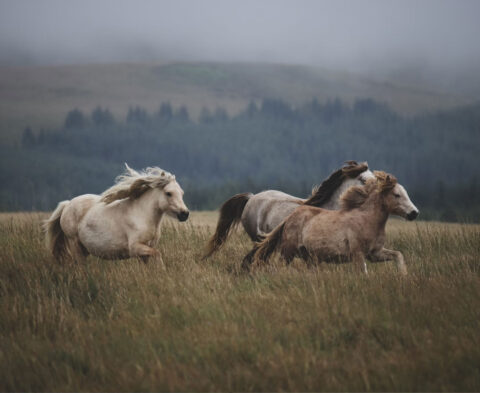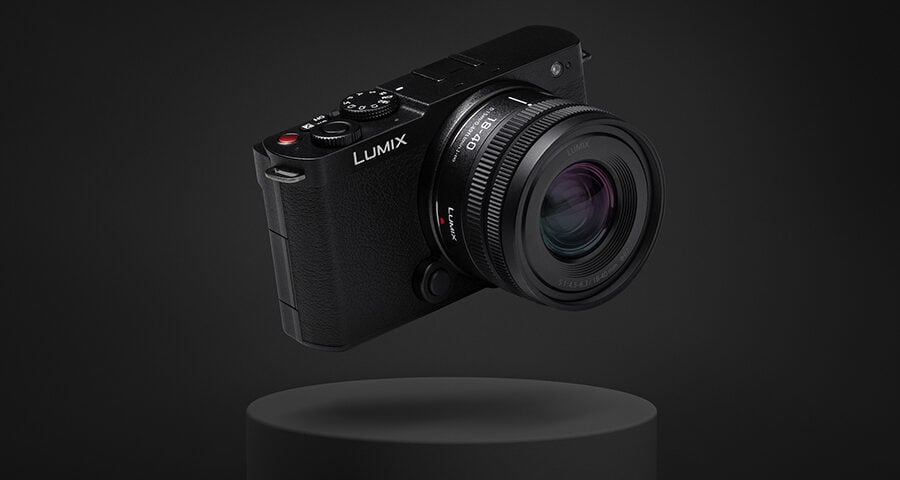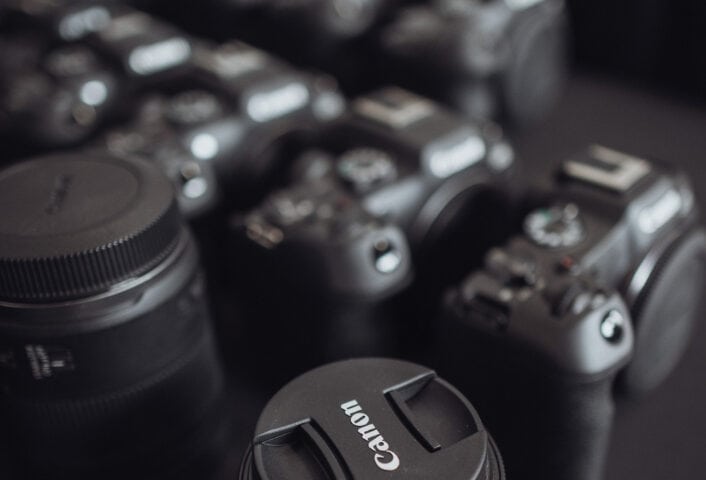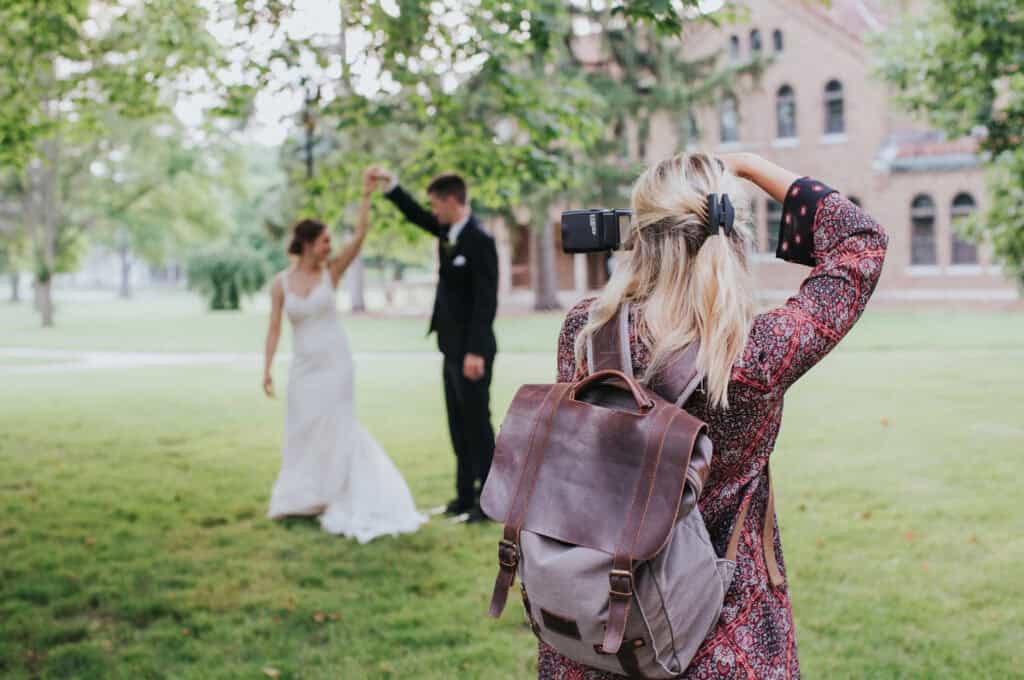
Wedding Photography and Videography is one of the most challenging tasks a photographer or videographer can undertake. The day is filled with fleeting moments, emotions, and details that must be documented beautifully and accurately.
Whether you’re a beginner or a seasoned pro, having the right equipment and techniques is crucial for success. This guide covers essential tips, steps, and recommended gear for wedding photographers and videographers at all skill levels.
Essential Tips for Wedding Photography and Videography
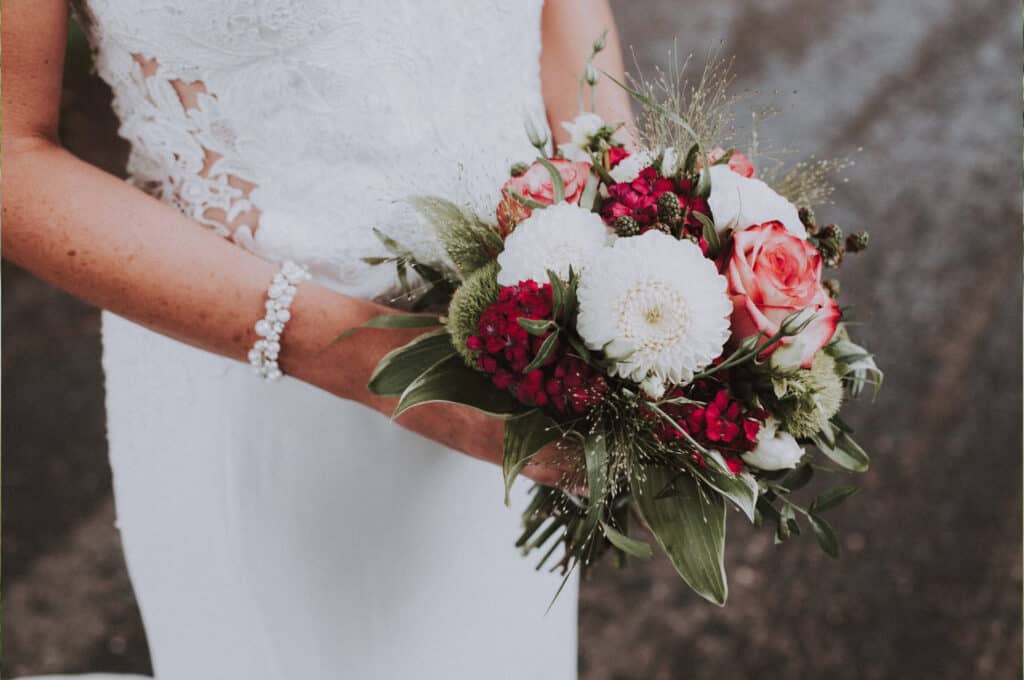
1. Pre-Wedding Planning:
- Consultation: Meet with the couple to understand their vision, preferences, and specific moments they want to capture. Discuss the timeline of the day, key family members, and any unique traditions or details they want highlighted.
- Site Visit: Visit the venue beforehand to scout locations for key shots and understand the lighting conditions. This helps in planning where to place lights and which angles will work best.
- Shot List: Create a detailed shot list, including must-have moments like the pre-wedding, first kiss, first dance, and family portraits. This ensures you don’t miss any important shots and helps in organizing the workflow.
2. Gear Preparation:
- Backup Equipment: Always have backup cameras, lenses, batteries, and memory cards to avoid any disruptions. A malfunction can happen at any time, so it’s crucial to have a plan B ready.
- Check Settings: Ensure all your gear is properly set up with the correct settings, and test everything before the big day. This includes setting the correct white balance, ISO, and ensuring your memory cards are formatted.
3. On the Wedding Day:
- Arrive Early: Give yourself plenty of time to set up and capture pre-ceremony moments. Early arrival allows you to get candid shots of the venue, bride/groom getting ready, decorations, and guests arriving.
- Blend In: Be as unobtrusive as possible to capture natural, candid moments. The best shots often come from when people are unaware they’re being photographed.
- Attire: A wedding photographer should dress professionally yet comfortably to ensure they can move around easily while maintaining a polished appearance. Here are some guidelines:
- Neutral Colours: Opt for neutral, dark colours like black, navy, or gray to blend in with the guests and not draw attention away from the event.
- Professional Attire: For men, a dress shirt and slacks, possibly with a tie or blazer. For women, a professional blouse with slacks or a modest dress. Avoid overly casual items like jeans or t-shirts.
- Comfortable Footwear: Choose comfortable shoes that allow for standing and moving around all day, such as dressy flats or professional-looking, comfortable dress shoes.
- Appropriate Accessories: Minimal jewelry and accessories to avoid noise and distraction. Consider a belt or harness for carrying camera gear.
- Weather Considerations: Dress in layers or bring a jacket if the wedding is outdoors or in variable weather conditions. For hot climates, lightweight, breathable fabrics are key.
- Neutral Colours: Opt for neutral, dark colours like black, navy, or gray to blend in with the guests and not draw attention away from the event.
- Decor and Detail Shots: Capture the beauty and essence of the wedding by photographing decor and memorable items, such as floral arrangements, table settings, wedding rings, and invitations. These details help tell the complete story of the day and provide lasting memories for the couple.
- Communication: Work closely with the wedding coordinator and other vendors to ensure smooth operations. Clear communication helps in coordinating the timeline and ensures you are in the right place at the right time.
4. Post-Production:
- Editing: Carefully select and edit the best shots to tell a cohesive and beautiful story of the day. Pay attention to details like colour correction, cropping, and retouching.
- Timely Delivery: Aim to deliver the final photos and videos within a reasonable time frame, typically 4-6 weeks. Timely delivery keeps the clients happy and maintains your professional reputation.
For more tips, check out some of these Henry’s articles about Wedding Photography & Videography:
- Wedding Videography with Red Lotus Films
- Mastering Wedding Photography
- From Props to Poses: Tips for Wedding Photo Bliss
- From a Photographers Perspective: How to Really Prepare for the Wedding
Recommended Gear for Wedding Photography and Videography
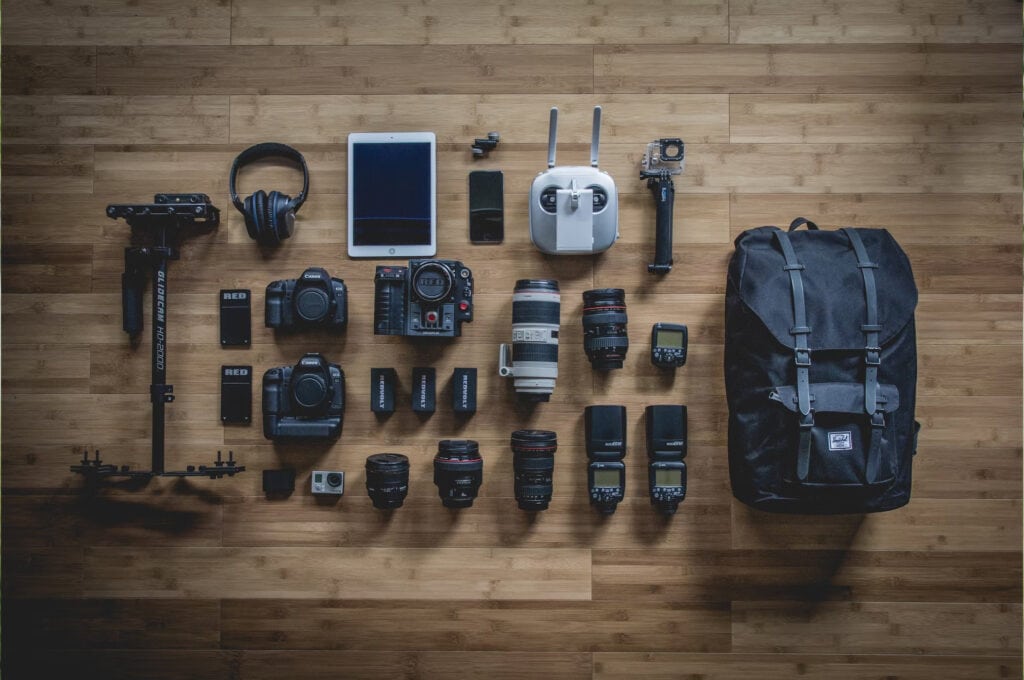
Your choice of camera gear will depend on whether you are primarily focusing on photography, shooting video, or both. Below is a list of recommended gear tailored for each type of coverage – broken into different experience levels:
Mirrorless vs. DSLR
Should you get a mirrorless or DSLR camera for shooting weddings?
Here is a comparison to help you pick:
DSLR:
- Battery Life: Typically longer battery life, ideal for long wedding days.
- Optical Viewfinder: Provides a clear, real-time view with no lag.
- Durability: Generally more robust and rugged, suitable for various shooting environments.
- Lens Variety: Wide range of lenses and accessories available.
Mirrorless:
- Size and Weight: More compact and lightweight, easier to carry around.
- Autofocus Speed: Often faster and more accurate autofocus, especially in low light.
- Silent Shooting: Ability to shoot silently, perfect for discreet moments during the ceremony.
- Electronic Viewfinder: Real-time exposure preview, useful for adjusting settings on the fly.
Weigh out the advantages of each and pick which suits you best (or carry both for different wedding photography & videography scenarios).
Cameras for Wedding Photography and Videography
Entry Level Cameras:
When starting out, look for cameras that offer user-friendly features and good image and video quality. Entry-level DSLRs and mirrorless cameras are great for beginners because they provide a balance of manual control and automated settings to help you learn and grow. Thankfully, today’s cameras shoot both incredible still photography and up to 4K video seamlessly.
All of these cameras come with introductory lenses which will do great for a wide range of wedding photography & videography. Add a macro lens, and you’ll be good to go!
- Canon EOS Rebel T7i DSLR Combo: Great for beginners, offering excellent image quality and user-friendly features. Its guided display helps new photographers understand different settings. The Canon T7i shoots 24.1MP, has built-in WiFi, a 3″ display, and 1080p video recording. This camera comes with a Canon 18-55mm F/3.5-5.6 IS II Lens.
- Canon EOS R100 Mirrorless Camera Combo: A great introductory mirrorless camera featuring 24.1MP CMOS, Full 4K HD video, and great low light ability. This camera comes complete with a Canon 18-45mm F/4.5-6.3 IS STM Lens.
- Nikon Z30 Mirrorless Camera Combo: Compact and easy to use, perfect for those new to DSLR photography. It has a long battery life and is very portable, making it ideal for all-day events. The Z30 is focused on videography and has the ability to shoot in 4K and 21MP photos. This camera combo comes with a 16-50mm F/3.5-6.3 VR Lens.
- Sony α6100 Mirrorless Camera Combo: A lightweight mirrorless option with fast autofocus, ideal for beginners. The real-time tracking feature ensures you don’t miss any crucial moments. The Sony A6100 shoots 24.2MP photos, and includes a 180-degree tiltable screen, and 4K video. This camera combo comes with a Sony 16-50mm F3.5-5.6 OSS Lens AND a Sony 55-20mm F/4.5-6.3 OSS Lens.
- Fujifilm X-T30 Mirrorless Camera Combo: Provides great colour reproduction and versatile shooting modes, making it a reliable choice for capturing wedding day details. Shooting 26.1MP, 4K Video & includes a large 3″ tilt touch display. This combo comes with a Fuji 15-45mm F/3.5-5.6 OIS PZ Lens.
Intermediate Level Cameras:
Let’s step it up a notch! As you gain experience, you’ll want a camera with more advanced features, better image quality, and improved performance. Intermediate cameras provide greater control over settings, faster autofocus, and better low-light capabilities.
All of these cameras come with premium lenses that will be perfect for wedding photography & videography. With the addition of a few more cameras lenses, you will be ready to shoot weddings!
- Canon EOS 90D DSLR Combo: A powerful DSLR with high resolution and fast performance, perfect for capturing detailed shots. The 90D shoots 32.5MP, 4K video and is packed with an abundance of other features. This camera comes with a Canon 18-135mm F/3.5-5.6 IS USM Lens.
- Canon EOS R8 Mirrorless Camera Combo: With a 24.2MP full-frame CMOS sensor, you’ll enjoy full control of your camera. This camera also shoots un-cropped 4K video that is oversampled to 6K for the best in video editing abilities. You will also get a Canon 24-50mm F/4.5-6.3 IS STM Lens in this combo.
- Nikon Z5 Mirrorless Camera Combo: A versatile mirrorless camera with great image quality and handling, offering excellent video features for hybrid shooters. This camera is capable of shooting 24.3MP full frame, sensitive ISO for low light, and 4K UHD. This camera combo comes completed with a Nikkor 24-50mm F/4-6.3 lens.
- Sony α7 II Mirrorless Combo: Full-frame mirrorless camera with excellent image stabilization, ideal for both stills and video. This camera is jam-packed with features you will love. It shoots 24.2MP Full Frame, has a huge ISO range, 10FPS photo shooting, and 4K HDR video recording. In this combo you will receive a Sony 28-70mm f/3.5-5.6 OSS Lens.
- Panasonic Lumix GH5 Mirrorless Combo: Known for its video capabilities, perfect for hybrid shooters looking to capture both high-quality photos and videos. This camera features broadcast and cinema-quality 4K video quality, a 20.3MP photo sensor and includes a great low-light Panasonic LEICA 12-60mm F/2.8-4.0 Lens.
Professional Level Cameras:
Professional photographers require cameras with top-tier performance, exceptional image quality, and reliability. These cameras are designed to handle demanding shooting environments and deliver stunning results consistently.
- Canon EOS 5D Mark IV DSLR: A full-frame DSLR beloved by professionals for its versatility and image quality, capable of capturing intricate details. With 30.4MP Full Frame shooting and 4K video – this camera is extremely capable for the most demanding photographer.
- Canon EOS R5 Mirrorless Camera: This camera features Canon’s new 45MP full-frame CMOS sensor, a powerful built-in image processor, massive ISO range and high-speed continuous shooting (up to 20 FPS). It has exceptional low-light autofocus and built-in AI for subject tracking. For videographers, enjoy 8K raw video recording and dual memory card slots for expanded storage.
- Nikon D850 DSLR: High-resolution DSLR that excels in detail and colour accuracy, making it perfect for both studio and outdoor portraits. This camera shoots 45.7MP full-frame photos, and 8K video. The D850 is a powerhouse and is the preferred camera by professional photographers worldwide.
- Nikon Z 7II Mirrorless Camera: Shooting at 45.7MP, this camera features dual processors for quicker capturing, incredible low-light capabilities and autofocus, simultaneous multi-exposure for true HDR, and 4K Ultra HD video recording. The list goes on.
- Sony α7R V: Full-frame mirrorless camera with exceptional resolution, ideal for capturing detailed portraits and large prints. With 61MP, up to 10FPS continuous shooting, incredible stabilization abilities and 8K abilities – the Sony A7R is ready for the most discerning wedding photographer and videographer.
Camera Lenses for Wedding Photography and Videography:
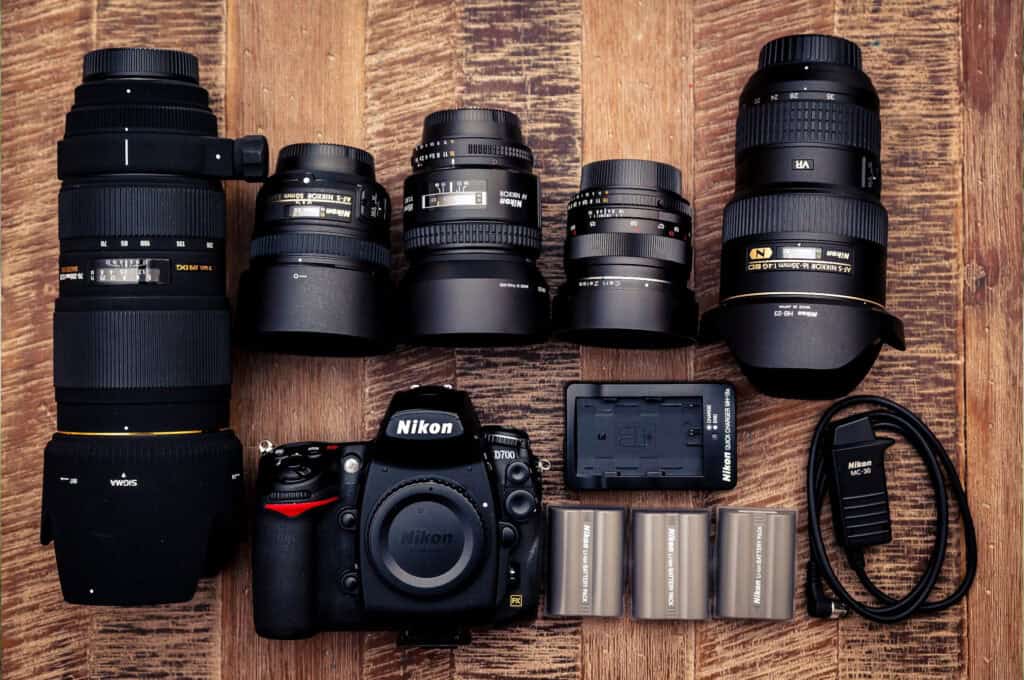
Selecting the right lenses is crucial for capturing the diverse moments of a wedding day. Here’s a breakdown of the types of lenses recommended for wedding photography, focusing on prime versus zoom lenses, and the differences between entry-level and professional-quality options.
There are three considerations when picking camera lenses for wedding photography & videography to capture every moment flawlessly:
- Low Light: Look for lenses with wide apertures (f/1.4, f/1.8) and image stabilization features. These lenses help in capturing clear images in dimly lit venues without needing to increase the ISO too much.
- Portraits: Prime lenses with focal lengths between 50mm and 135mm are ideal for portraits, offering sharp focus and beautiful background blur to highlight the subject.
- General Use: Versatile zoom lenses like 24-70mm or 24-105mm cover a wide range of focal lengths, making them suitable for various scenes during a wedding day, from group shots to individual portraits.
Prime Lenses for Wedding Photography and Videography:
Prime lenses have a fixed focal length, offering sharpness and a wide aperture. They are ideal for portraits and low-light conditions, providing beautiful background blur (bokeh) and excellent image quality.
For wedding photography and videography, the most commonly recommended prime lens sizes are 35mm, 50mm, and 85mm. Each of these focal lengths offers unique advantages suited for different aspects of a wedding day.
35mm Prime Lens:
- Photography: Great for capturing wide shots, including venue overviews, group photos, and candid moments. It provides a wider field of view while maintaining a natural perspective.
- Videography: Ideal for documentary-style shots, allowing you to capture the environment and context along with the subjects. It’s perfect for capturing dynamic scenes with movement.
50mm Prime Lens:
- Photography: A versatile choice that works well for portraits, detail shots, and general use. It offers a natural perspective similar to what the human eye sees, making it great for a variety of wedding scenes.
- Videography: Excellent for capturing close-up shots and interviews. It provides a balanced field of view, making it suitable for various types of shots without much distortion.
85mm Prime Lens:
- Photography: Perfect for portraits, offering a flattering compression that makes subjects stand out beautifully against a blurred background. It’s ideal for capturing emotions and expressions during the ceremony and reception.
- Videography: Great for close-up shots and detail work, such as rings, decorations, and facial expressions. It allows you to capture intimate moments without being intrusive.
Each of these prime lenses has its strengths, and many wedding photographers and videographers find it beneficial to have more than one in their kit to cover different aspects of the event effectively.
Zoom Lenses for Wedding Photography and Videography:
For wedding photography and videography, versatile zoom lenses are essential for capturing a wide range of moments and scenes. The most commonly recommended zoom lenses are 24-70mm, 70-200mm, and 24-105mm. Each of these focal lengths offers unique advantages suited for different aspects of a wedding day.
24-70mm Zoom Lens:
- Photography: A versatile all-purpose lens, perfect for capturing everything from wide-angle venue shots to close-up portraits. It offers flexibility for various shooting scenarios, making it ideal for the dynamic nature of weddings.
- Videography: Excellent for a wide range of shots, from establishing shots to medium close-ups. Its zoom range allows you to quickly adjust your framing without changing lenses, which is crucial during fast-paced events.
70-200mm Zoom Lens:
- Photography: Ideal for capturing candid moments and portraits from a distance. Its long focal length allows you to take unobtrusive shots of the ceremony and candid moments during the reception. The wide aperture (typically f/2.8) provides beautiful background blur and works well in low light.
- Videography: Perfect for capturing detailed shots and tight compositions. It allows you to film intimate moments without being intrusive, providing a cinematic feel with its shallow depth of field and excellent subject isolation.
24-105mm Zoom Lens:
- Photography: A versatile zoom range that covers wide-angle to short telephoto, making it suitable for a variety of wedding shots. It’s great for capturing everything from group shots to individual portraits with ease.
- Videography: Offers a good balance between wide-angle and telephoto capabilities, allowing you to adapt to different scenes quickly. It’s particularly useful for documentary-style videography, where flexibility and quick framing adjustments are essential.
Choosing the Right Zoom Lens for Weddings:
- Flexibility: Zoom lenses provide the ability to quickly switch between different focal lengths, making them ideal for capturing the fast-paced and varied scenes of a wedding.
- Versatility: Lenses like the 24-70mm and 24-105mm are great all-around lenses that can handle a wide range of shooting situations, from wide-angle shots to portraits.
- Distance Shots: The 70-200mm lens allows you to capture candid moments from a distance without being intrusive, which is perfect for capturing natural, unposed moments.
Having these zoom lenses in your kit ensures that you are prepared for any situation, from wide venue shots to intimate close-ups, and everything in between.
For more detailed advice and to explore our selection of zoom lenses, visit our website or one of our Henry’s locations.
Essential Gear & Accessories for Wedding Photography and Videography
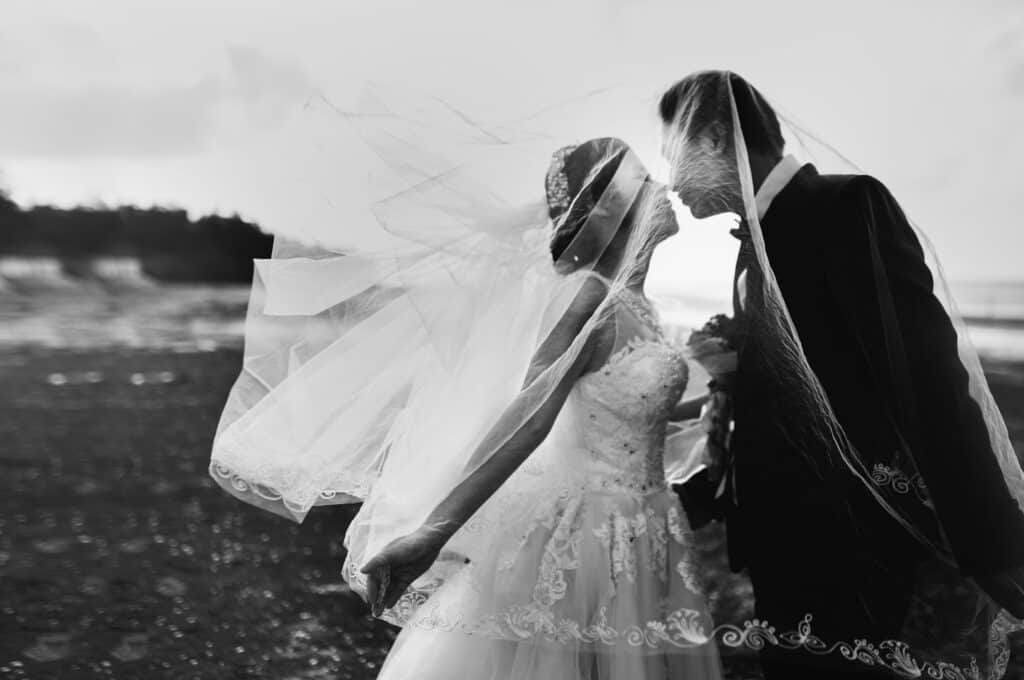
Having the right accessories can significantly enhance the quality and efficiency of your wedding photography and videography. Here are some essential pieces of gear to consider:
- Camera Flash: An external flash is crucial for low-light situations, providing the additional light needed for indoor ceremonies and receptions.
- Diffusers & Lens Filters: Attachments that soften the light from your flash, reducing harsh shadows and creating a more natural look.
- Lighting: Portable lighting kits can help illuminate your subjects in dark venues and are essential for consistent, high-quality video.
- Microphones: Quality microphones, such as lavalier and shotgun mics, are essential for clear audio capture during vows, speeches, and other important moments.
- Straps and Harnesses: Comfortable straps and harnesses help distribute the weight of your gear, allowing you to move freely and shoot for longer periods without fatigue.
- Bags: A durable, well-organized camera bag is essential for safely transporting and accessing your gear quickly throughout the day.
- Memory Cards: Always carry extra memory cards. Ensure they are formatted and include a case to keep them safe.
- Extra Batteries: It is recommended to carry an extra 3+ batteries for your camera, and additional batteries and chargers for your flash devices. During the wedding, find a safe spot to keep everything charged.
Success Stories and Final Tips
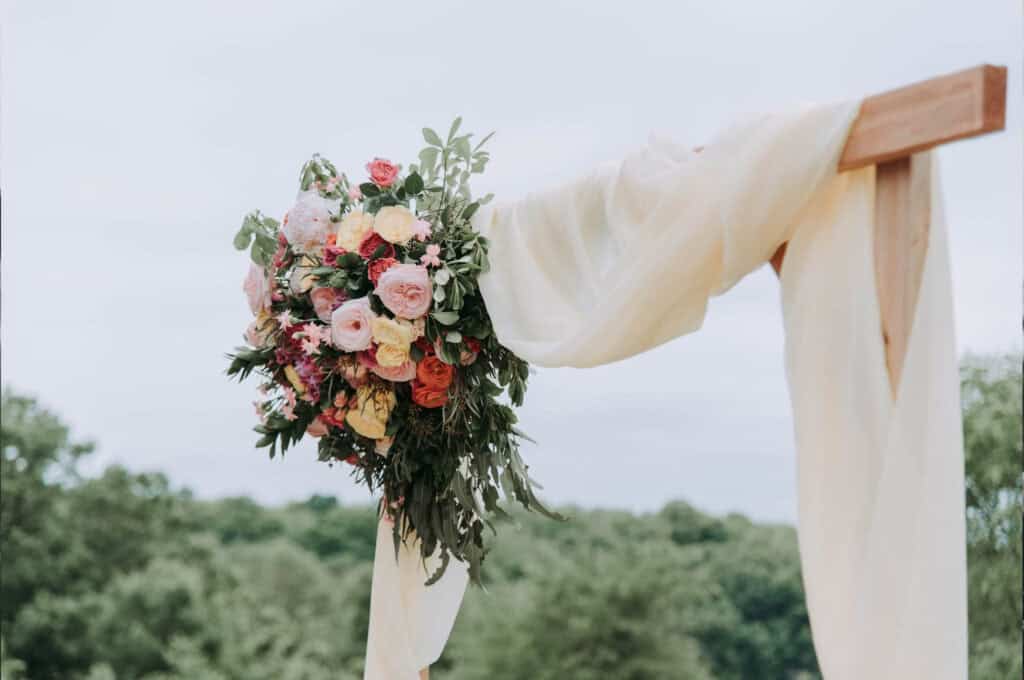
Successful wedding photographers and videographers understand that capturing a wedding requires not only technical skills and the right equipment but also the ability to connect with the couple and anticipate special moments. Check out this Wonderful Wedding Story for inspiration.
Here are a few final tips to help you succeed:
- Build Relationships: Establish a good rapport with the couple and their families. It helps in making them comfortable and capturing genuine emotions.
- Stay Organized: Keep track of your shot list, equipment, and schedule to ensure a smooth workflow on the wedding day.
- Practice: Regularly practice with your gear to understand its capabilities and limitations, ensuring you’re prepared for any situation on the big day.
By investing in the right equipment and continually honing your skills, you can capture stunning, memorable images that couples will cherish for a lifetime. For all your wedding photography and videography needs, visit a Henry’s Retail Location for expert advice and a wide selection of professional gear.
Explore More
